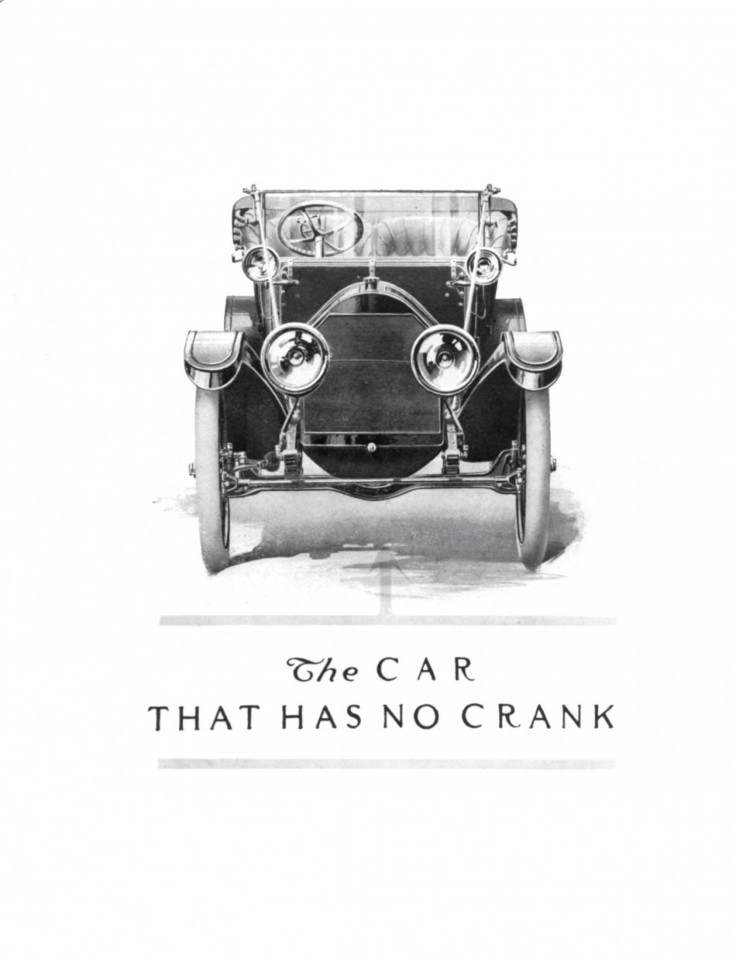Did Cadillac's Battery Starter Kill the Electric Car 100 Years Ago?

Are you cranky today? Do you know how you got cranky?
No, not the circumstances that got you there. The term cranky may have been coined more than a century ago by thousands of drivers put in bad moods after the long process of starting their cars.
That's why, on Wednesday, Cadillac and General Motors Co. celebrated the centennial of the electric car starter, which debuted in the 1912 Cadillac Touring and allowed drivers to start their gasoline-powered cars with the turn of a key or push of a button.
It was a total game changer when they introduced the electric car starter, said Greg Wallace, director of the General Motors Heritage Center, in an interview.
It was a game changer indeed because it popularized the gas engine and effectively killed the electric car before its popularity could pick up. It had the ability to bring more women into the driving pool. And it eliminated the hand crank, which aside from putting drivers in bad moods, left many other drivers with serious injuries.
The hand crank was the No. 1 cause of injury during automobile operation in the early 1900s, Wallace said. It could lead to broken arms if the engine stalled and kicked back instead of starting up. Electric cars, on the other hand, grew in popularity because starting them was easier. They were even more popular among women.
You no longer had to be a young, able-bodied male to drive a car, Wallace said.
It certainly made the gas-powered automobile more reliable, he added. It also made it more attractive to people.
Shortly after the electric starter's introduction, Cadillac began marketing cars to women. Cadillac displayed three such ads on its Web site, two with women driving cars and one that advertises one of its vehicles as the car that has no crank.
They quickly realize that all of a sudden now, they have a new market with women, Wallace said. You kind of see the trend toward women in advertising shortly after the introduction of the electric starter.
The New York Times points out that the Online Etymology Dictionary dates the origin of the word cranky to 1821. But either way, the absence of a crank undoubtedly made millions of motorists over the next 100 years a little less cranky.
© Copyright IBTimes 2025. All rights reserved.





















